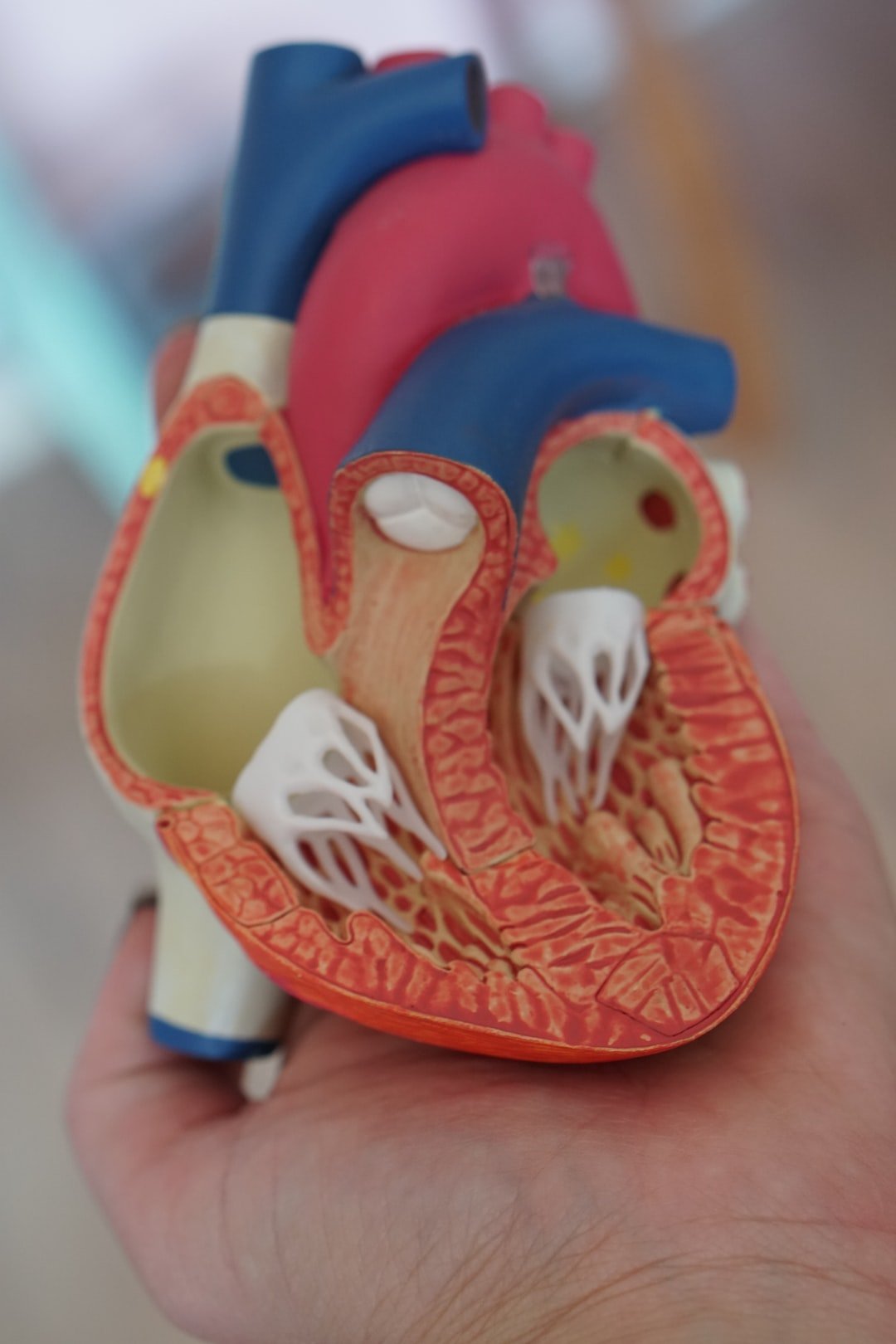Common Men’s Health Issues That You Should Be Concerned About
Men’s health is a topic that should not be overlooked. While women have traditionally been more proactive when it comes to their health, it is crucial for men to be aware of and address their specific health concerns. In this article, we will discuss some of the most common men’s health issues that you should be concerned about. From prostate problems to cardiovascular diseases, it is essential to prioritize your well-being and take the necessary steps to maintain good health.
Prostate Health
 The prostate gland plays a crucial role in men’s reproductive health. It is responsible for producing the fluid that nourishes and transports sperm. However, it is susceptible to various conditions, including prostate cancer, prostatitis, and benign prostatic hyperplasia (BPH).
The prostate gland plays a crucial role in men’s reproductive health. It is responsible for producing the fluid that nourishes and transports sperm. However, it is susceptible to various conditions, including prostate cancer, prostatitis, and benign prostatic hyperplasia (BPH).
Regular screenings and early detection are vital to preventing or effectively treating these conditions. A prostate-specific antigen (PSA) test is commonly used to screen for prostate cancer. This blood test measures the levels of PSA, a protein produced by the prostate gland. If the PSA levels are elevated, further diagnostic tests, such as a biopsy, may be recommended.
Prostate Cancer
Prostate cancer is one of the most prevalent cancers in men. It occurs when abnormal cells develop in the prostate gland. Some common symptoms include difficulty urinating, blood in the urine or semen, and erectile dysfunction.
Regular screenings, such as a prostate-specific antigen (PSA) test, can help detect prostate cancer early on, improving treatment outcomes. Treatment options for prostate cancer depend on the stage and aggressiveness of the cancer. They may include surgery, radiation therapy, hormone therapy, chemotherapy, or a combination of these approaches.
Prostatitis
Prostatitis refers to the inflammation of the prostate gland and is often caused by a bacterial infection. Symptoms may include pain or discomfort in the pelvic area, difficulty urinating, and frequent urination.
Seeking medical attention promptly is essential for accurate diagnosis and appropriate treatment. Treatment for prostatitis typically involves antibiotics to target the underlying infection. In some cases, pain medication or alpha-blockers may also be prescribed to alleviate symptoms.
Benign Prostatic Hyperplasia (BPH)
BPH is a non-cancerous condition characterized by an enlarged prostate gland. It can lead to urinary problems such as frequent urination, weak urine flow, and difficulty emptying the bladder completely.
Treatment options for BPH include medication, minimally invasive procedures, or surgery, depending on the severity of the condition. Medications such as alpha-blockers or 5-alpha reductase inhibitors can help relax the muscles of the prostate and improve urinary flow. Minimally invasive procedures, such as transurethral microwave therapy or laser therapy, can also be effective in reducing the size of the prostate gland. In severe cases, surgical removal of the prostate may be necessary.
Cardiovascular Health
 Cardiovascular diseases, including heart disease and stroke, are major concerns for men’s health. Leading a heart-healthy lifestyle and understanding the risk factors associated with these conditions can significantly reduce the likelihood of developing cardiovascular problems.
Cardiovascular diseases, including heart disease and stroke, are major concerns for men’s health. Leading a heart-healthy lifestyle and understanding the risk factors associated with these conditions can significantly reduce the likelihood of developing cardiovascular problems.
Heart Disease
Heart disease encompasses various conditions, such as coronary artery disease, heart attacks, and heart failure. It is often caused by a buildup of plaque in the arteries, leading to reduced blood flow to the heart. Risk factors include high blood pressure, high cholesterol levels, smoking, obesity, and diabetes.
Regular exercise, a balanced diet, quitting smoking, and managing stress are essential steps towards maintaining a healthy heart. Engaging in aerobic exercises, such as brisk walking or cycling, can improve heart health and strengthen the cardiovascular system. A diet rich in fruits, vegetables, whole grains, and lean proteins can help control cholesterol levels and maintain a healthy weight. Managing stress through relaxation techniques, such as meditation or deep breathing exercises, can also contribute to a healthy heart.
Stroke
A stroke occurs when the blood supply to the brain is interrupted, either due to a clot or a burst blood vessel. It can lead to significant disability or even death. Risk factors for stroke include high blood pressure, smoking, diabetes, obesity, and physical inactivity.
Adopting a healthy lifestyle, managing blood pressure, and seeking prompt medical attention in case of any warning signs are crucial for preventing stroke. Regular exercise can improve blood circulation and reduce the risk of blood clots. Controlling blood pressure through medication, lifestyle modifications, or a combination of both can also help prevent stroke. Managing diabetes through proper medication, diet, and regular monitoring of blood sugar levels is essential. Additionally, maintaining a healthy weight and avoiding excessive alcohol consumption is important for stroke prevention.
Sexual Health
Sexual health is an integral part of the overall well-being of men. It is essential to address any concerns or issues related to sexual function, as they can significantly impact self-esteem, relationships, and overall quality of life.
Erectile Dysfunction (ED)
Erectile dysfunction refers to the inability to achieve or maintain an erection firm enough for sexual intercourse. It can result from various factors, including underlying health conditions, stress, anxiety, or certain medications.
Discussing concerns with a healthcare professional can help identify the cause of ED and explore suitable treatment options. Treatment for erectile dysfunction may include medications such as phosphodiesterase-5 inhibitors, vacuum erection devices, penile implants, or psychological counseling. Lifestyle changes, such as quitting smoking, reducing alcohol consumption, managing stress, and maintaining a healthy weight, can also improve erectile function.
Premature Ejaculation
Premature ejaculation is a common sexual problem characterized by the inability to delay ejaculation during sexual activity. It can lead to frustration and dissatisfaction for both partners.
Open communication with a healthcare provider can help identify potential causes and explore behavioral or medical interventions to manage premature ejaculation effectively. Techniques such as the stop-start method or the squeeze technique can help delay ejaculation. Medications, such as selective serotonin reuptake inhibitors (SSRIs), may also be prescribed to increase the time it takes to ejaculate.
Mental Health
Men’s mental health is often stigmatized and overlooked. However, addressing mental health concerns is crucial for overall well-being and should be prioritized.
Depression and Anxiety
 Depression and anxiety can affect men just as much as women, but men are often less likely to seek help. Symptoms may include persistent sadness, loss of interest in activities, changes in appetite or sleep patterns, and feelings of restlessness or irritability.
Depression and anxiety can affect men just as much as women, but men are often less likely to seek help. Symptoms may include persistent sadness, loss of interest in activities, changes in appetite or sleep patterns, and feelings of restlessness or irritability.
If you or someone you know is experiencing these symptoms, it is essential to reach out to a mental health professional for support and treatment. Treatment options for depression and anxiety may include therapy, medication, or a combination of both. Cognitive-behavioral therapy (CBT) is a common therapeutic approach that can help individuals develop coping mechanisms and change negative thought patterns. Medications, such as selective serotonin reuptake inhibitors (SSRIs), can also be prescribed to manage symptoms.
Substance Abuse
Substance abuse, including alcohol and drug addiction, is a significant concern for men’s mental health. It can have detrimental effects on physical health, relationships, and overall quality of life.
Seeking help from healthcare providers, support groups, or rehabilitation centers can provide the necessary tools for recovery and improve mental well-being. Treatment for substance abuse may involve detoxification, counseling, support group meetings, and ongoing support to prevent relapse.
In conclusion, men’s health should not be neglected. By understanding and addressing common men’s health issues, such as prostate problems, cardiovascular diseases, sexual health concerns, and mental health issues, men can take proactive steps toward maintaining their overall well-being. Regular screenings, adopting a healthy lifestyle, seeking timely medical attention, and open communication with healthcare professionals are essential for preventing and managing these health conditions effectively.
FAQ
1. What are some common prostate health issues that men should be aware of?
Prostate health issues that men should be aware of include prostate cancer, prostatitis, and benign prostatic hyperplasia (BPH). Regular screenings and early detection are important for prevention and effective treatment.
2. How can prostate cancer be detected and treated?
Prostate cancer can be detected through a prostate-specific antigen (PSA) test. Treatment options depend on the stage and aggressiveness of the cancer and may include surgery, radiation therapy, hormone therapy, chemotherapy, or a combination of these approaches.
3. What are the symptoms and treatment options for prostatitis?
Symptoms of prostatitis include pain or discomfort in the pelvic area, difficulty urinating, and frequent urination. Treatment typically involves antibiotics to target the underlying infection, along with pain medication or alpha-blockers to alleviate symptoms.
4. What are the risk factors and preventive measures for heart disease and stroke?
Risk factors for heart disease and stroke include high blood pressure, high cholesterol levels, smoking, obesity, and diabetes. Preventive measures include regular exercise, a balanced diet, quitting smoking, managing stress, controlling blood pressure, and seeking prompt medical attention in case of any warning signs.